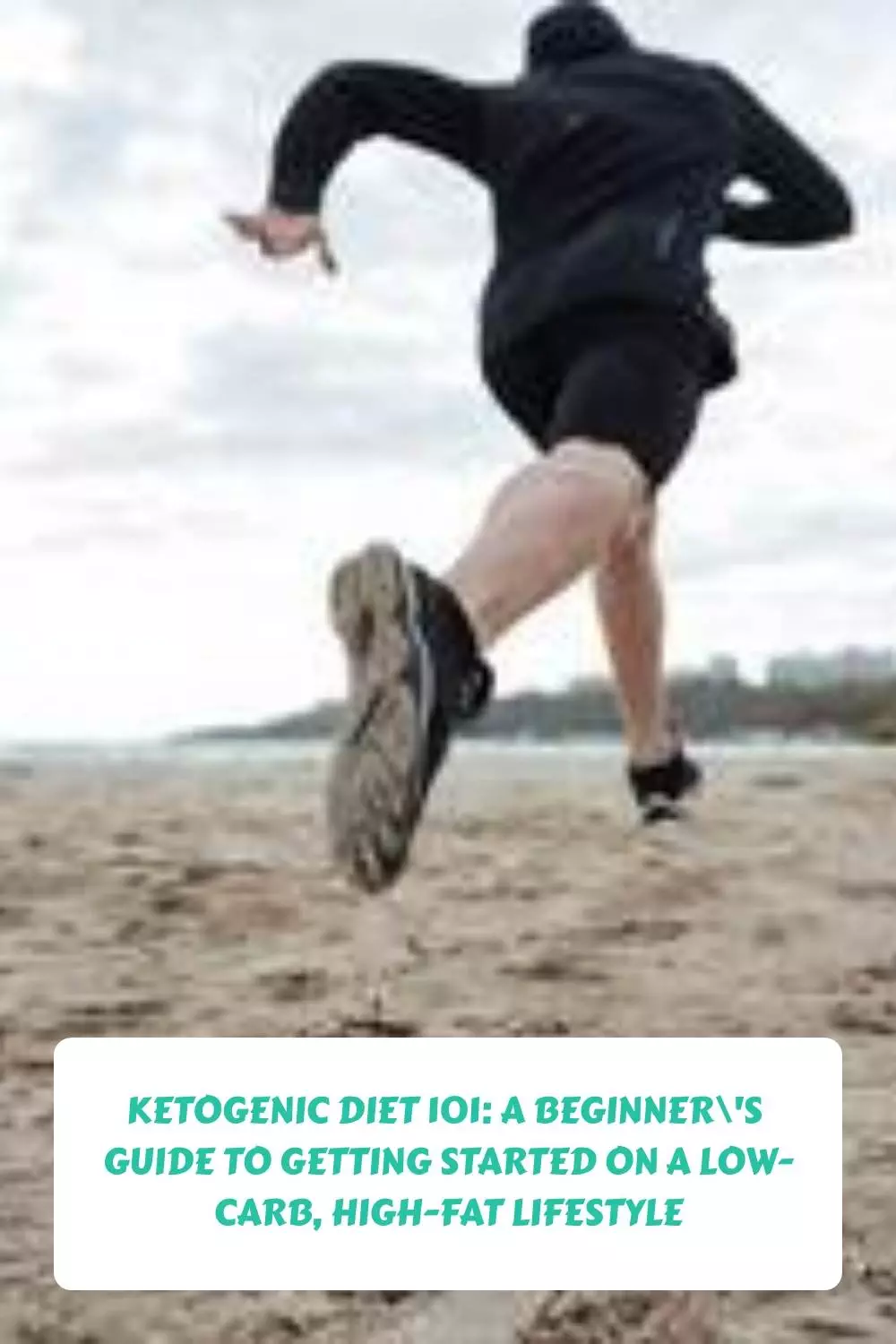
Ketogenic Diet 101: A Beginner’s Guide to Getting Started on a Low-Carb, High-Fat Lifestyle
Keto DietWhile a balanced dietethyweight.com/2023/06/11/the-ultimate-guide-to-the-keto-diet-everything-you-need-to-know/”>keto diet is a low-carbohydrate, high-fat diet that has become increasingly popular in recent years. It involves drastically reducing carbs and replacing them with healthy fats, which puts the body into a state of ketosis where it burns fat for energy instead of glucose from carbs. This can lead to weight loss, improved blood sugar control, and other health benefits. If you’re thinking about trying out this lifestyle, here are some things you need to know before getting started.
What Is a Ketogenic Diet?
A ketogenic diet is a nutritional approach that focuses on consuming foods that promote the production of ketones by the liver. These ketones serve as an alternative fuel source to glucose when there isn’t enough insulin present or if your body doesn’t have access to sufficient amounts of glycogen (stored glucose) in the muscles and liver. By eating fewer carbs and more fats, your body enters a metabolic state called ketosis, where it starts burning stored fat for energy rather than relying solely on glucose.
Benefits of the Keto Diet
There are many potential benefits associated with following a ketogenic diet. Some people report significant weight loss while others experience improvements in their blood sugar levels, cholesterol profiles, and overall sense of wellbeing. Additionally, research suggests that a ketogenic diet may be effective at treating certain neurological disorders such as epilepsy and Parkinson’s disease. However, it should be noted that not everyone will see these same results and individual responses vary depending on factors like genetics, age, sex, and activity level.
How to Get Started on a Low-Carb, High-Fat Lifestyle
If you’re interested in giving the keto diet a try, start by making some simple changes to your daily meal plan. Here are some tips to get you started:
1. Reduce Your Carb Intake – The key to starting a ketogenic diet is to reduce your intake of carbohydrates. You want to aim for less than 50 grams per day, ideally closer to 20-30 grams. This means cutting back on sugary drinks, processed snacks, bread, pasta, rice, and starchy vegetables like potatoes and corn.
2. Up Your Fat Intake – To maintain ketosis, you need to consume plenty of healthy fats. Look for sources of saturated and monounsaturated fats like avocado, nuts, seeds, butter, coconut oil, olive oil, and grass-fed meat.
3. Stay Hydrated – Drinking enough water is important for any diet, but especially so on a ketogenic one since dehydration can cause ketone levels to rise too quickly. Try to drink at least eight cups of water each day.
4. Eat Plenty of Protein – Consuming adequate protein helps support lean muscle mass and prevent breakdown during periods of fasting. Good choices include fish, poultry, eggs, dairy products, legumes, and tofu.
5. Experiment With Recipes – There are countless recipe ideas available online for those looking to follow a ketogenic diet. From savory breakfast scrambles to decadent desserts, there’s something for every taste bud. Just make sure to check labels carefully for hidden carbs and use natural sweeteners sparingly.
Sample Meal Plan for the Keto Diet
Here’s an example of what a typical day might look like on a ketogenic diet:
Breakfast: Scrambled eggs with spinach and cheese served alongside a side salad dressed with olive oil and vinegar.
Snack: Cream cheese stuffed celery sticks with almond butter drizzle.
Lunch: Grilled chicken caesar salad with Parmesan cheese and croutons made with homemade dressing using anchovies, garlic, lemon juice, egg yolk, and olive oil.
Snack: Hard boiled eggs with guacamole and salsa.
Dinner: Baked cod fillet served with roasted veggies including broccoli, zucchini, bell peppers, and onions tossed in olive oil and seasoned with salt and pepper.
Supplements for the Keto Diet
While a balanced diet can provide all the necessary nutrients for most individuals, supplements may be helpful for some who are following a strict ketogenic diet. Here are some common ones used by those on a keto diet:
1. MCT Oil – Medium chain triglycerides (MCTs) are a type of fat found naturally in coconut and palm kernel oils. They are easily digested and converted into ketones, making them a great addition to a ketogenic diet.
2. Salt – Since excessive sodium intake can increase risk of high blood pressure, those on a ketogenic diet may benefit from adding extra salt to their meals.
3. Magnesium – Low magnesium levels can occur due to restricted carb intake, leading to symptoms like muscle cramps and twitches. Taking a magnesium supplement can help alleviate these issues.
4. Vitamin D – Since vitamin D is obtained primarily through sunlight exposure, those living in colder climates or those who avoid sunlight may benefit from taking a vitamin D supplement.
Exercise Tips for the Keto Diet
Regular exercise is encouraged on any diet, but particularly so on a ketogenic one. When you exercise, your body uses up its stores of glycogen, which can lead to increased hunger and decreased ketone production if you don’t refuel properly. Here are some tips for staying fueled and energized during workouts on a ketogenic diet:
1. Take Pre-Workout Supplements – Many pre-workout formulas contain carbs, so choose one that is compatible with a ketogenic diet. Look for options that contain ingredients like creatine, beta-alanine, caffeine, and citric acid.
2. Use Branched Chain Amino Acids (BCAA) – BCAAs are essential amino acids that can help prevent muscle breakdown during periods of fasting. Consider taking a BCAA supplement before and after workouts.

3. Drink Water – Dehydration can impair performance and increase risk of injury. Make sure to drink plenty of water before, during, and after exercising.
Conclusion
The keto diet is a powerful tool for promoting weight loss, improving blood sugar control, and enhancing overall health. While it may require some adjustments to your daily meal plan, the benefits can be substantial. Remember to consult with your doctor or registered dietitian before beginning any new diet or exercise program.

